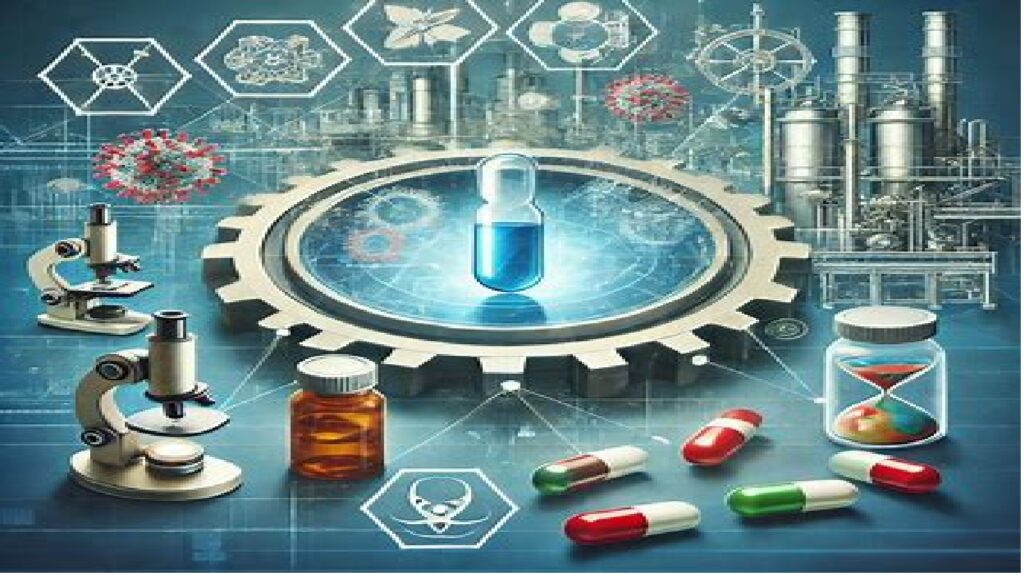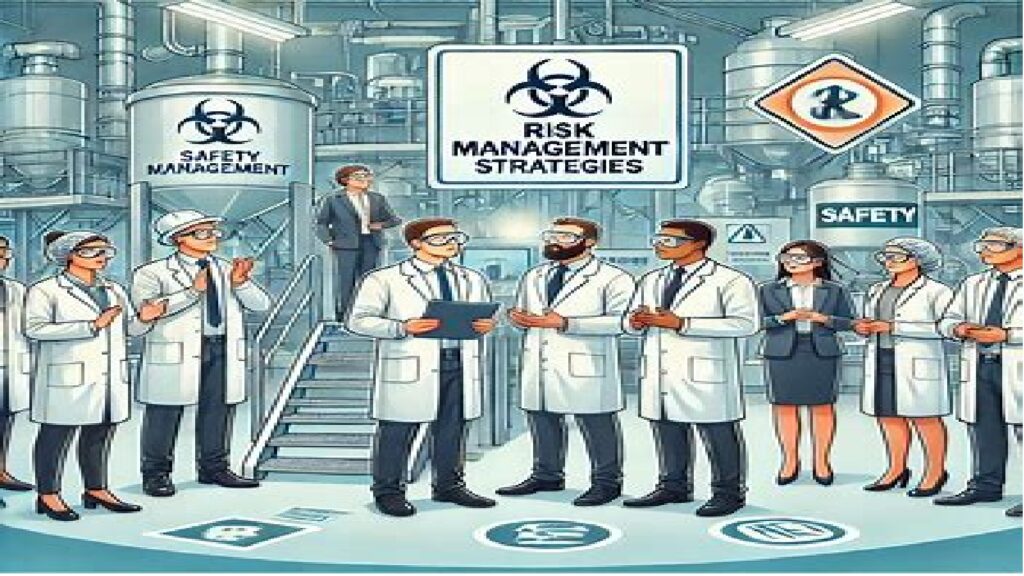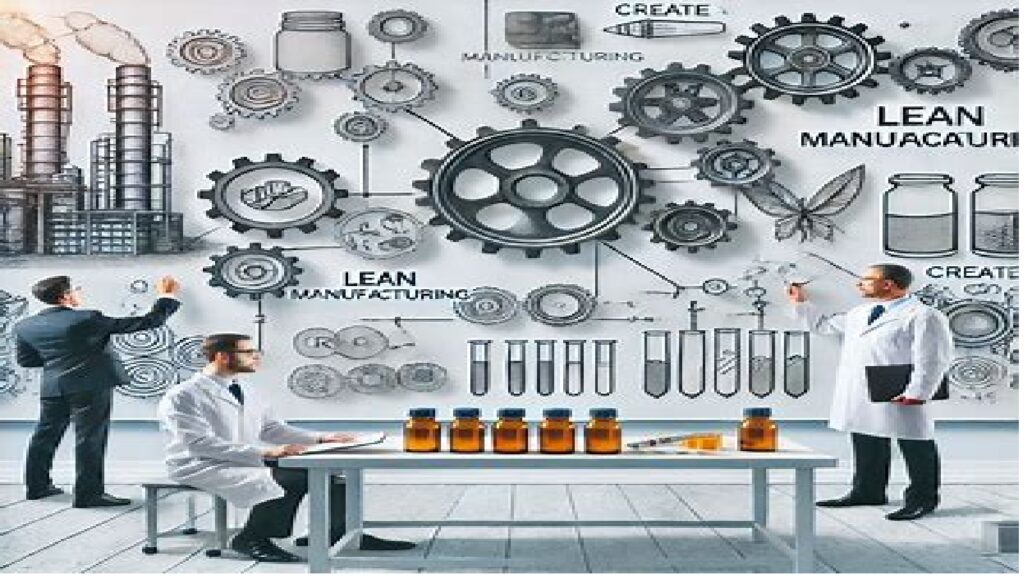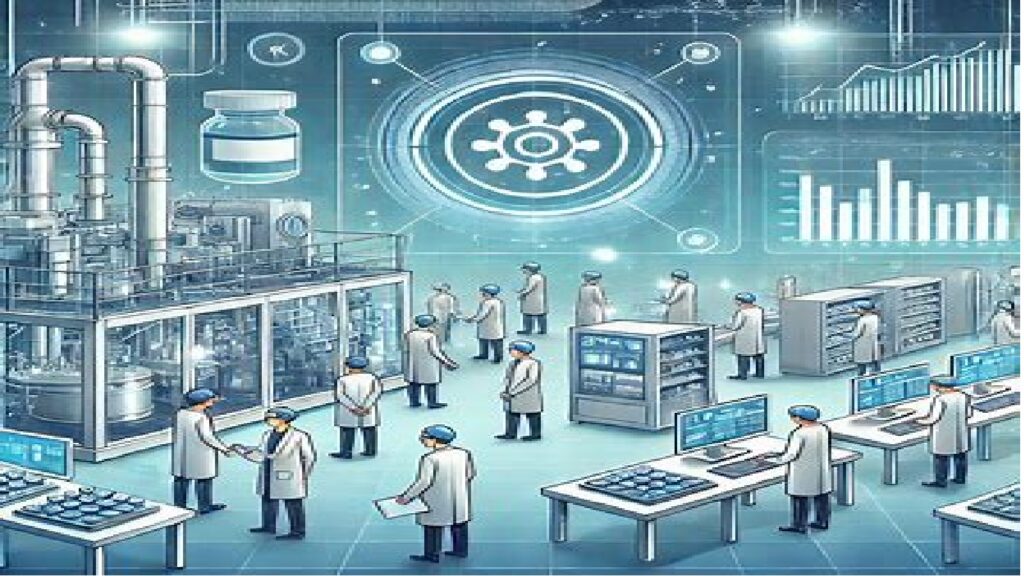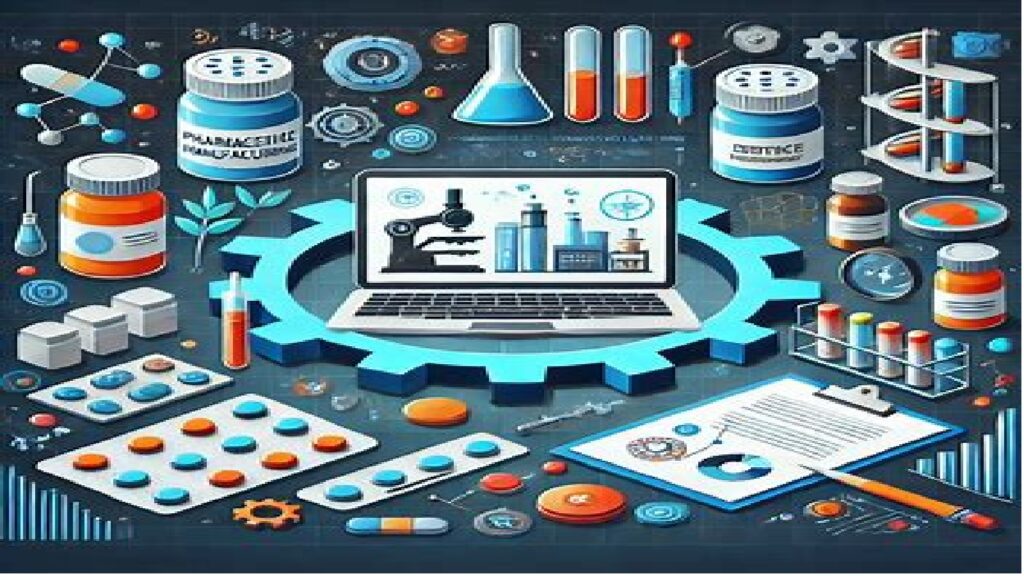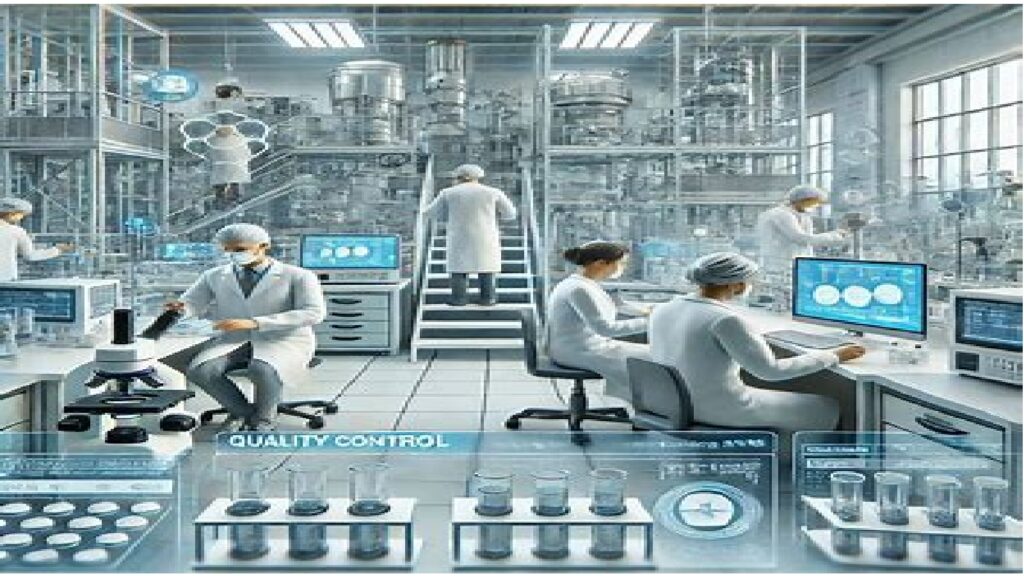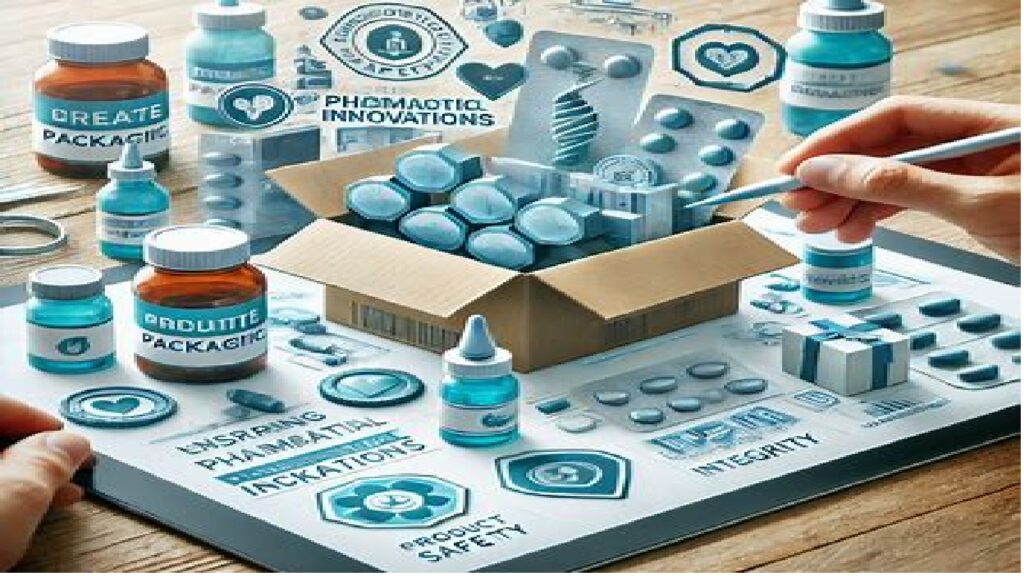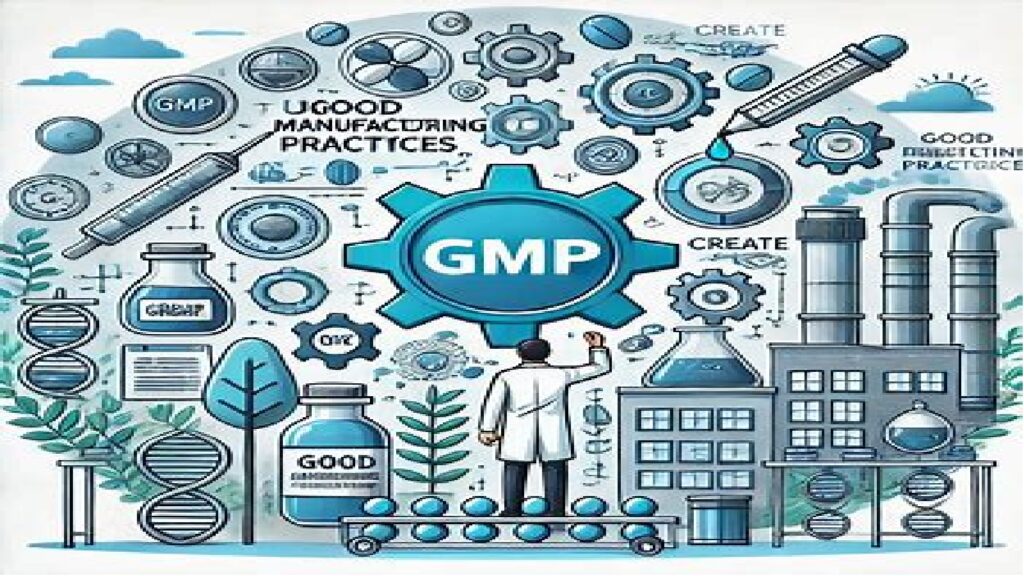Regulatory compliance
1. Introduction Pharmaceutical manufacturing is a cornerstone of the healthcare industry, ensuring the production of high-quality medicines that improve and save lives. However, challenges such as counterfeit drugs, supply chain inefficiencies, and regulatory compliance pose significant risks. Blockchain technology has emerged as a transformative solution, enhancing traceability, transparency, and trust within the pharmaceutical supply chain. […]
“Revolutionizing Pharmaceutical Manufacturing Equipment: Key Innovations and Best Practices for the Future”
1. Introduction to Pharmaceutical Manufacturing Equipment Pharmaceutical manufacturing equipment encompasses a wide range of machinery used for processing, blending, granulating, filling, and packaging medications. These machines are designed to meet the unique requirements of producing high-quality pharmaceuticals while adhering to Good Manufacturing Practices (GMP). 2. Key Innovations in Pharmaceutical Manufacturing Equipment 2.1. Continuous Manufacturing Systems
“Revolutionizing Pharmaceuticals: The Impact of Artificial Intelligence in Drug Manufacturing and Development”
1. Introduction to Artificial Intelligence in Pharma AI refers to the simulation of human intelligence by machines. In the pharmaceutical sector, AI is applied in various processes such as drug discovery, predictive analytics, clinical trials, and manufacturing. Its ability to analyze vast amounts of data quickly and accurately makes it a game-changer. 2. AI in
“Navigating Challenges: Effective Strategies for Managing Risk in Pharmaceutical Manufacturing”
1. Understanding Risks in Pharmaceutical Manufacturing 1.1. The Importance of Risk Understanding 1.1.1 Why Risk Awareness is Critical 1.1.2 Role of Risk Understanding in Decision-Making 1.2. Types of Risks in Pharmaceutical Manufacturing 1.2.1 Product Quality Risks 1.2.2 Operational Risks 1.2.3 Regulatory Risks 1.2.4 Supply Chain Risks 1.2.5 Environmental and Safety Risks 1.2.6 Cybersecurity Risks 1.3.
“Optimizing Pharmaceutical Production: The Role of Lean Manufacturing”
Lean manufacturing plays a pivotal role in transforming pharmaceutical production by enhancing efficiency, reducing waste, and ensuring high-quality outputs. This methodology focuses on streamlining processes, optimizing resource utilization, and fostering a culture of continuous improvement. By implementing lean principles, pharmaceutical companies can accelerate time-to-market, maintain regulatory compliance, and reduce operational costs. Additionally, lean manufacturing supports sustainability goals and promotes innovation, making it an essential strategy for meeting evolving market demands and delivering cost-effective medications to patients worldwide.
“Optimizing Pharmaceutical Production: The Role of Lean Manufacturing” Read More »
“Ensuring Excellence: The Crucial Role of Data Integrity in Pharmaceutical Manufacturing”
1. Understanding Data Integrity Data integrity refers to the accuracy, completeness, and consistency of data throughout its lifecycle. It ensures that data, whether in electronic or paper-based formats, is reliable and trustworthy. In the pharmaceutical industry, this includes manufacturing records, laboratory test results, and quality assurance documentation. 1.1 ALCOA+ Principle The ALCOA+ principle underpins data
“Pharmaceutical Manufacturing Outsourcing: Benefits and Challenges Explored”
1. What is Pharmaceutical Manufacturing Outsourcing? Pharmaceutical manufacturing outsourcing involves contracting third-party organizations, known as contract manufacturing organizations (CMOs) or contract development and manufacturing organizations (CDMOs), to handle various stages of drug production. This can include: 2. Pros of Pharmaceutical Manufacturing Outsourcing 2.1. Cost Efficiency One of the primary drivers of outsourcing is cost reduction.
“Pharmaceutical Manufacturing Outsourcing: Benefits and Challenges Explored” Read More »
“Advancing Quality Control in Pharmaceutical Manufacturing: Techniques, Best Practices, and Future Trends”
1. Importance of Quality Control in Pharmaceuticals 1.1 Ensuring Patient Safety Quality control ensures that medications are free from contaminants, contain the correct ingredients, and meet the required potency levels to safeguard patient health. 1.2 Regulatory Compliance Pharmaceutical products must adhere to strict regulatory standards set by organizations such as the FDA, EMA, and WHO.
“Revolutionizing Pharmaceutical Packaging: Innovations for Safety and Integrity”
1. The Importance of Pharmaceutical Packaging Pharmaceutical packaging serves multiple purposes: 2. Emerging Trends in Pharmaceutical Packaging 2.1. Smart Packaging Technologies Smart packaging incorporates digital features to improve drug safety and usability. Examples include: 2.2. Sustainable Packaging Solutions With growing environmental concerns, the pharmaceutical industry is adopting eco-friendly packaging materials: 2.3. Child-Resistant and Senior-Friendly Designs
“Revolutionizing Pharmaceutical Packaging: Innovations for Safety and Integrity” Read More »
“Comprehensive Guide to Understanding Good Manufacturing Practices (GMP) in Pharma”
1. What Are Good Manufacturing Practices (GMP)? GMP refers to a set of regulations, codes, and guidelines that govern the manufacturing processes and environments in the pharmaceutical industry. These practices are enforced by regulatory bodies such as: GMP guidelines ensure that pharmaceutical products are consistently produced and controlled to meet predefined quality standards. 2. Importance
“Comprehensive Guide to Understanding Good Manufacturing Practices (GMP) in Pharma” Read More »


